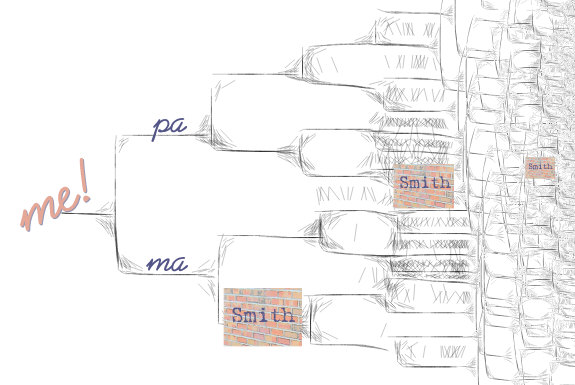For the first order of business, congrats to book drawing winner…
*drumroll*
Yangsze Choo
Congratulations and thank you to all who entered!
Secondly, since it is now technically tomorrow and I’ve got nothin’, I’m going wildly off-topic of books, genealogy and faith to talk about my latest kitchen fail. If well received, we’ll make it a feature. It’ll keep me humble.
Introduction: “And it was all yellow…”*
I didn’t think about blogging it right then, so I didn’t take any pictures … and you wouldn’t have either. However, what you will find at Food 52: How to Fix Broken Aioli is pretty close to what you would have seen in my kitchen, except that practically every surface (all of which are white, or are supposed to be anyway) was covered with yellow. So. Much. Yellow.
*With apologies to Coldplay, because I don’t even like that song.
Saffron and Garlic Aioli
Did you know that it takes 75,000 flowers to produce one pound of saffron threads? I estimate around 8,000 flowers sacrificed themselves into the literal teaspoon of saffron I purchased, along with seven of my dollars. For a teaspoon.
I also bought a whole bottle of grapeseed oil, which I have never needed before. There went another six of my dollars.
Also Dijon mustard … a whole lemon … And I was out of eggs, so that was a whole carton … you see where I’m taking this. Saffron and Garlic Aioli was supposed to be a gloriously delicious condiment. Expensive. But delicious.
The cookbook, Plates to Share by Jennifer Joyce, has never steered me wrong before, and in general I recommend it, as it’s helped me plan parties and aided me as a research tool in a foodie story I wrote a while back (the pepper story, for those who might wonder). However, in retrospect, the recipe as written gave me approximately a zero percent chance of success. Allow me to explain.
In Which I Complain About the Food Writer’s Word Choice
As I wittily mentioned to Facebook already, if the recipe had actually used the word “emulsify,” I might have concluded it was above my pay grade. However, it didn’t, I didn’t, and for a moment, it looked like my husband and I would be having some very expensive yellow dye with our dinner tonight. (Saffron is a gorgeous color, by the way. Or at least, gorgeous when it’s not composing highly yellow stains on white countertops.)
Also, while the recipe calls for adding the oil slowly, internet foodies indicated that should have been “very slowly,” or to use a stronger verb as we writer-types are wont to do, “dribble.” Except I just looked it up and the actual verbiage is “slowly drizzle.” Whatever, “dribble” would have been a lot more specific. And “emulsify.” That would have helped, too. A lot.
Anyway, I was quite agitated, until I found help: the video linked above. At the end of that minute and thirty seconds, I totally wished that the hostess and I could be friends. Thanks Amanda!
Her technique worked. My nasty, curdled, separated, oily mess turned into a pleasant, creamy (but still very yellow) spread with the consistency of mayonnaise. Expensive but supposedly glorious-tasting mayonnaise.
“Now your failure is complete.”*
We set the table for our feast (i.e., lots of other things besides aioli: veggie crudites, shellfish and bread, mostly.) The last laugh? My saffron and garlic aioli was not gloriously delicious. Nor was it remotely delicious. No, it was actually completely, tee-totally Gross-with-a-capital-G. Still expensive though. So it had that going for it.
If I had to describe it, I’d say it was heavily like the three dollar dab of mustard, not so much like the seven dollar teaspoon of saffron. Very disappointing. Still, realizing that the original brokenness probably impacted the flavor, I’ll probably try it again. Maybe.
Why be a glutton for punishment, when you can be a glutton for aioli?
*With apologies to Darth Vader, although I’ll bet he doesn’t care at all.
Tweetables
Saffron & Garlic Aioli was supposed to be gloriously delicious… @brandyhei breaks aioli & lives to laugh about it
If they’d only said “emulsify,” I’d have known aioli was above my pay grade… Kitchen Fail via @brandyhei
With apologies to Coldplay and Darth Vader…. Broken Aioli by @brandyhei
Question for You
Got a funny foodie fail to share? Or how about tips for a perfect aioli? I love to hear from you!








